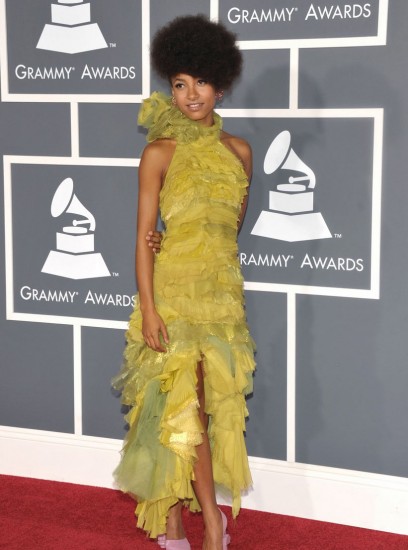
On February 13, Bieber nation exploded. The cause? Justin Bieber’s loss of the Best New Artist Grammy to little-known jazz musician Esperanza Spalding. Spalding’s Wikipedia page was swiftly vandalized and Twitter was flooded with profanity- and misspelling-filled, 140-character-long tirades. The heart of these objections, poorly articulated though they may be, is essentially that The Bieb represents an important aspect of popular culture. Snubbing him is symptomatic of the Grammys status as an institution out of touch with the trends of the industry, which it exists to champion.
At the other end of the spectrum Arcade Fire pulled off the win for best album with The Suburbs, a concept album detailing the listlessness and alienation that have become associated with suburban life. It was a somewhat unconventional choice for the Grammys, known to traditionally favor chart-topping pop acts such as 2010’s best album winner Taylor Swift, and classic rock throwbacks such as 2009’s winner, a collaboration between rock icon Robert Plant and country singer Alison Krauss.
Reaction to this was mixed. Some questioned what role the win would have on the indie rock scene: did this mean that a genre, which built itself around its outsider status, was going mainstream? Others just wanted to know who Arcade Fire was, bombarding Twitter and Facebook with their confusion.
On a basic level the response to these two Grammy upsets was surprisingly uniform. Most people are tired of the Grammys stodgy, out-of-touch nature. However, people are divided on what the Grammys should be instead, some want it to be in line with Pitchfork while others want it to be more akin to Tiger Beat. Both of these publications are frequent sources of derision outside of their target audience, so it would probably be best if the Grammys were able to find some happy triangulation between the two and its current incarnation.
The Arcade Fire’s win is a step in the right direction. The Suburbs represents the daring evolution of an act that has always been consistent into something that is unforgettably emblematic of its era. While these are all things that could be said about Kanye West’s My Beautiful Dark Twisted Fantasy (which was weirdly snubbed even a nomination), The Suburbs stands head and shoulders above competitors like Katy Perry’s Teenage Dream or Lady Antebellum’s Need You Now.
The effect that this win will have on the indie scene is more difficult to pin down. Indie rock could easily follow in the footsteps of grunge, with a sudden explosion into mainstream consciousness and then an undignified death when overexposure and a wave of crass imitators suck the life out of the genre. On the other hand, this could simply mean one exceptionally good band is getting the recognition it deserves.
Despite his popularity, Justin Bieber is similarly an unproven commodity. It remains to be seen whether he will flame out and disappear like so many teen idols before him, or take the Justin Timberlake route and surprise us with talent that goes beyond his swoopy haircut.
Ultimately, it’s not in the hands of awards committees to decide anyone’s future but rather up to the artists themselves to keep people listening. If the Grammys want to reassert their relevance, they need to recognize acts that push music in new directions rather than handing out statues to the same names one might see on an edition of Now That’s What I Call Music! and then quickly forget. We already have the Billboard Top 100 to tell us who is the most popular. We want the Grammys to tell us who is the best. •









